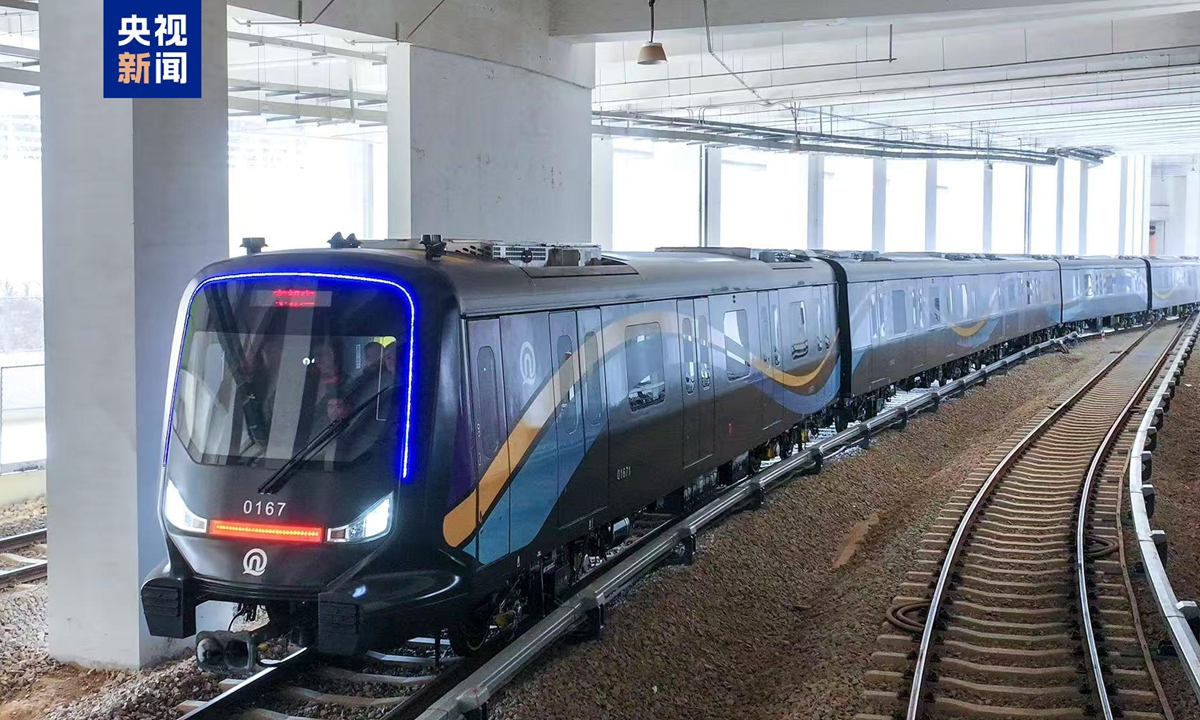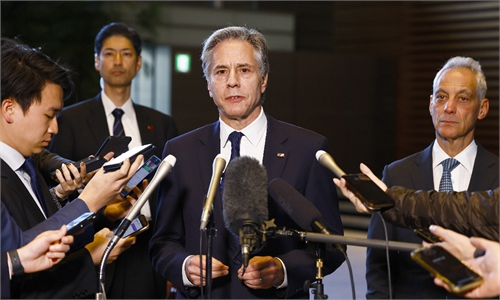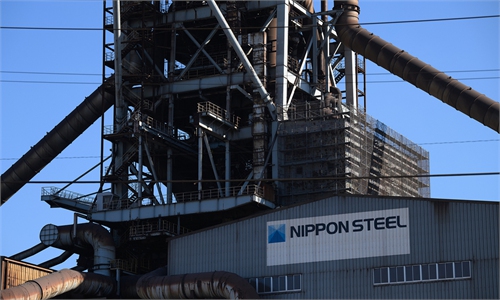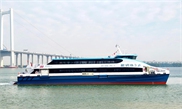World’s first carbon fiber metro train begins passenger service in E.China’s Qingdao

Photo: CCTV
The world's first carbon fiber metro train began passenger service on Friday on the Metro Line 1 in Qingdao, East China's Shandong Province, according to a report by China Central Television (CCTV). Named "CETROVO 1.0 Carbon Star Express," the train was independently developed in China.
It marks groundbreaking progress in China's metro train lightweight technology and greener transformation, observers said. It's a significant upgrade for the load-bearing structure, as carbon fiber is much lighter than traditional metals like steel and aluminum, according to a statement on the website of CRRC Qingdao Sifang Co, the train's developer.
The company noted that it will play a vital role in driving the green and low-carbon transformation of China's urban rail transit and will help the urban rail industry in achieving its "dual carbon" goals.
Compared with traditional metal metro vehicles, the carbon fiber train is approximately 11 percent lighter, with operational energy consumption reduced by 7 percent, the CCTV report noted. Each train can reduce carbon dioxide emissions by 130 tons annually, which is equivalent to afforestation of 101 mu (6.7 hectares), according to a report by Xinhua News Agency.
As well as being lighter and more energy-efficient, carbon fiber also offers higher strength, better environmental adaptability, and lower operation and maintenance costs throughout its life cycle. It is also corrosion-resistant.
The strength of carbon fiber is more than five times that of steel, while its weight is less than a quarter of steel, making it an excellent material for lightweight rail vehicles, according to the statement from CRRC Qingdao Sifang Co.
The material not only enhances the strength of the car body, providing greater impact resistance and extending the structural lifespan, but also improves vibration reduction and isolation, resulting in smoother operation, reduced noise, and a more comfortable ride, the CCTV report noted.
The Qingdao Metro Line 1 spans approximately 60 kilometers and has 41 stations. It serves as a major north-south backbone line in Qingdao, according to the report.
The development of the carbon fiber metro train began in 2021, according to local media reports. From July to December 2024, it underwent a six-month on-site line test on Qingdao Metro Line 1, during which 20 routine vehicle tests and 36 type tests were conducted, along with comprehensive system-to-vehicle testing to fully validate the train's performance. In December 2024, it passed the expert review for passenger trial operation on the line, and on January 5 it received third-party independent safety assessment approval, the report noted.
Global Times



